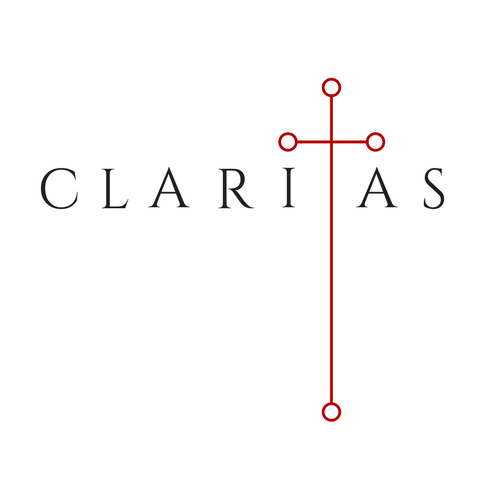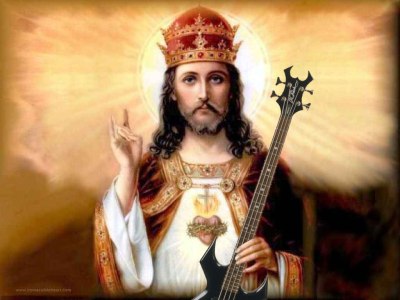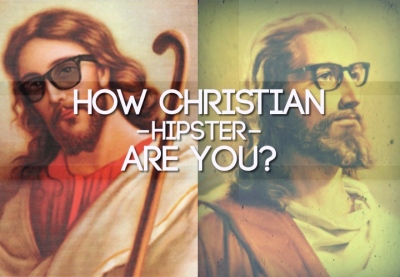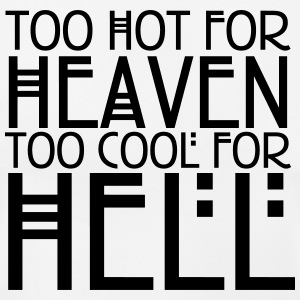Why has church attendance dropped off so dramatically in the last 50 years? There are a whole range of reasons, I am sure, and nearly every article in this blog is addressing the issue in one form or another, but if you ask me one of the main contributory factors is the music that is generally heard at Mass. And, in my opinion it is the style of music that is offered by the most common pew misalettes that is contributing most powerfully to that decline.
I am talking about a style of music that seems to have started to develop around the late 1960s and sounds to me like a sort of fusion of American folk (vintage 1967), 19th century pop classics, Broadway musical and a hint of Victorian hymnody thrown in for good measure. However you describe the genre, it is responsible, I suggest for many to flee the pews.

Before anyone writes to me to say how much they like the music they hear each Sunday, or tell me how high quality the pianist or band that plays, and how heartily those in the congregation that do attend join in, I want to say one thing. My argument is not based upon the assertion that this is bad music. I do have strong opinions on that, but my personal taste has no bearing on the conclusion that I draw. My argument is that the whole philosophy that has contributed to the composition of such music is fataly flawed and causes the damage.
So, for argument’s sake, let us assume that the music we hear in Mass is of the highest quality within its genre. I would say that it would still have the same effect, which is to tend to drive most people away from Mass. And I would say the same even when the standard of the musicianship is of the highest order, and the choir consists of the best trained professional singers.
The problem in my opinion lies in the whole ethos that underlies the creation of music for the missals. The goal, it seems, is to connect with people by giving them music that is derived from already popular forms. The problem with this approach is that it can only connect to those people who actually listen to enjoy that style of music out of church. Today’s westerm society is so fractured that tastes vary hugely and there is no style of secular music that has universal appeal. As a result, whichever style we choose, and however well it is done, it can only every hope to appeal to a small part of the population. The rest will be driven away because they do not like it. So if we create music that appeals to those who were young in the late 1960s it will be detested by those who were young in the 1970s (like me) and all people who are younger.
If we go for something that is actually cutting-edge today and takes its form from current youth culture, even if it connects with the 17-year-olds who listen to that style of music, it will drive away all the older generations and even most other youth, because youth culture is itself fractured and there is no single style that all seventeen year olds listen to. I just think of what was going on when I was seventeen. The sixth form in Birkenhead School in the 1970s (for Americans the sixth form is the upper two years of high school) was divided between punks, heavy metal fans and progressive rock fans, with a few who liked disco, funk and soul (this was northern England).
Just in case you’re interested, I liked obscure progressive rock and jazz fusion, such as Return to Forever, Frank Zappa and Be Bop Deluxe. I used to like being seen with the LP covers tucked under my arm to show people I had highly developed music taste.
There was a little crowd of Christians who were trying to be cool and had their own Christian rock music (After the Fire was the name of the group they all liked). To me they seemed to be a sad bunch who obviously ‘just didn’t have clue’ if they thought that stuff was any good. We all used to make fun of them.
I didn’t start to take the Faith seriously until many years lateer when I was 26 and met a Christian who was just as disparaging about ‘cool’ Christianity as I was and who, it was obvious to me, didn’t even care about trying to be cool, hip and trendy at all. He just wasn’t playing that game.
What appealed to me was a Faith, and an associated culture that I saw at the Brompton Oratory, that spoke of a world beyond the petty secular concerns that had absorbed me up to that point. I don’t think I’m the only one. I would refer you to the Tradition is for the Young articles by Gregory DiPippo on this blog to back up my case.
But before we get too smug, traditionalists aren’t totally exempt from bad music thing either. Much ‘traditional’ church music has the same fault. Holy God We Praise They Name or Immaculate Mary is really just the On Eagles Wings from you great-grandmother’s day. All of these hymns – even the vast majority of non-chant hymns in hymn books that are considered fairly traditional, such as the Adoremus hymnal or the St Michael hymnal, sound off-puttingly ‘churchy’ to most people outside church, and just like the misalette music, drives more people away from church than it attracts for the same reason. It is a genre that is not universal and so only appeals to a small part of the population.
I for one can’t bear any of these hymns – they sound just like what I grew up with going to Methodist church. I hated them when I was eight and I hate them now. It is one of the main reasons that I chose to escape from going to church when I was given the choice at 13 years old. But even if this weren’t the case and I had grown to love traditional Methodist hymns and so now loved 19th century Catholic hymns it would be no argument for their inclusion in the liturgy. The vast majority of the rest of the population would not like them and they are not instrinsically liturgical.
I would use the same argument about music that is derived from 19th century operatic styles (so strongly criticized by Pius X) is just the same. We may feel that it is a higher form of music than that provided by Christian rock band liturgy, but it will still only appeal to very narrow group of people and will drive all others away. This is true, even it was written for a Latin Mass.
If the argument about the music at Mass is raised, very often the counter argument is that we have to be ‘pastoral’. It will be said that most of those attending church like the music they are getting. There would be a revolt if we changed what is so familiar to them, so the argument runs, and so we can’t risk changing the music even if we wanted to.
In response, I say that it is almost certainly likely to be true that the people attending like the music they are getting, Those who attend do so because they like, or at least can tolerate the music. Most of those who can’t stand the music they hear at Mass just stay away. They find the experience so excruciatingly, embarrasingly banal, that they go jogging or decide to read the Sunday papers with a cup of coffee instead. This is why, I suggest, the majority of teenagers leave the moment their parents give them permission to make their own minds up. And, for the reasons already described, it will be true even if we try to find a form of music that some teenagers love – because there is no form of secular music that most teenagers love. It doesn’t exist.
We can go further than this and raise another argument as to why the approach of the common misalette music composers of aping popular forms will inevitably cause a decline in attendance at Mass. Suppose we did have a society in which wider culture was more homogeneous and tastes were more consistent across the generations, it would still be a flawed approach.
I understand that many African cultures, for example, are more homogeneous and less fractured than western culture. This being the case, even if the music of the Mass reproduced the popular African style perfectly it would not be the right approach. This is because, although it might well appeal to a wider proportion of the population and you might find higher attendance at Mass, it would not facilitate a deeper and active participation in the liturgy.
This is because the liturgy is the wellspring of its own culture and an authentic liturgical culture must be at the heart of any Catholic culture of faith. It is separate world that appeals to what is universally human in us and draws us to God in a way that is impossible for secular culture. The music that draws us to it and directs to the Eucharist most powerfully is that which is derived from a liturgical culture, so the Church tells us is gregorian chant.
Secular forms might well draw us in but if then they are so far removed from the forms of an authentic liturgical culture, then even in the context of the liturgy they are inclined to leads us back to the secular values, not on to the Eucharist. Such music is less likely to draw us into a genuinely deep and active participation in the worship of God. In the long term therefore any secular music, even if it draws people to Mass, will inevitably lead to more people leaving the Church than staying because the music is distracting them from what is at the heart of the Mass. As a result there is less of a force that draws us into a supernatural transformation of Christ. There will be fewer Christians therefore with the capacity for transmitting an authentic Christian joy to those with whom they interact in their daily lives outside the Mass and the liturgy. With this reduced power for evangelzation, we will lose our lifeblood. This ultimately is how we get people back to Mass. The absolute priority is to make the encounter one in which there is the highest possibility of transformation of those present, however few they may be at this point. These people will in turn draw others to the Faith for the right reasons, and those they attract will find the source of what they seek when they get to the Mass.
This is why Cardinal Sarah said in his address at the Sacra Liturgia conference in London that even in Africa the liturgy is not the place to incorporate African culture. Rather, because the liturgy has its own culture, which is uniquely and universally Christain, it should seeps into the wider culture and transforms secular culture into something greater, one that is in some way derived from and points to the liturgy while simultaneously being distinctly African.
The only hope we have for the Mass to be a true long term draw capable of touching the many who currently have no interest in attending, is to focus on making chant the dominant form. We must even be prepared to lose a few of those who are currently at Masses with misalette music and who are there for the wrong reasons to drift away or even be prepared to carry on in the face of strong complaints from these people if it is changed.
While having chant at all Masses would help, even then it is not going to be enough, in my opinion.
We must chant in such a way that is going to connect with the ordinary person and this probably means singing at a pitch that is natural for men to join in. I have been told, for example, that men are less likely to join in if you have female cantors. This is not because of an inherent sexism, but because the female voice is a pure sound and men find it difficult to come in at a pitch an octave below what the cantor is singing because it is totally separate from what he is hearing. If there is a male cantor, on the other hand, the men can emulate what they hear and the women still find it relatively easy to join in because the male voice contains higher harmonics which allow for a connection with female voices. Even if men are chanting, there is a style of chant in which a thin, strained, high pitch voice is encouraged. This sounds effeminate to me and I suggest has the same problems for congregations – it is not only as difficult for most men to sing along to as a female voice, but it is also difficult also to listen to, as the hearer struggles to make a connection to a voice that is so alien to his own.
Were the approach to music correct and, dare one hope for more, our liturgies were celebrated in the way that the Church truly desires, would this then bring huge numbers back to churches? In the long run, I would say yes, but in the short run, almost certainly not. But it would bring to the church immediately those who are genuinely looking for what the chant directs their hearts to – God. In the long term this would have a knock-on effect. More people who attend Mass would be participating more deeply and become emissaries of the New Evangelization, shining with the light of Christ as they go about their daily business. This, in turn, would draw others to Christ. Because we have free will this is never going to be the whole population, but I do believe that it can be far more than we cuurently see in our churches today.
Has the throw-away misalette approach to church music had its day? Probably not yet, to judge from the support that so many bishops, priests and choir directors currently give to this style in the cause of a faux pastoralism that actually alienates most people. But because of this alienation, it does contain the seeds of its own distruction. Unless it is replaced by something else, under the influcence of brave pastors and choir directors who are prepared to take the truly pastoral approach – one that takes into consideration the majority who aren’t at church, then we are doomed to steadily declining congregations until the generation that currently listens to this style of music grows old and disappears.
Faith tells us that the parasite will die before it has killed its host. The Church will remain; and so one has to conclude that at some point the music will change before it brings the whole edifice collapses. I pray that it is soon.




I grew up in a small Methodist Church in the 70s and we sang beautiful old hymns. Our choir had about 10 members, the director was a high school music teacher. The hardest part of attending the Catholic Church was and still is the music.
LikeLike
But I think that I would argue that beautiful those those hymns might seem to you, they are not liturgical as required by the Church, that is a different thing.
LikeLike
Um, “Sing a new song unto the Lord”?
Even chant was once “new”.
4/10
LikeLike
I wonder if you actually read the article? I have not said at any point there should not be new music, just music that is composed with the philosophy of incorporating what is ‘popular’ in secular culture
LikeLike
I just found your blog. You raise a number of good points. Clearly, the Church has called for chant. Why chant is so superior to other forms, however, is often hard for the less musically proficient such as myself to articulate.
LikeLike
I’d be very willing to give it a try. How would a parish actually implement it?
LikeLike
Hi Kevin,
It depends on the resources and the situation and whether you want to do English or Latin or both. I suggest that you contact Adam Bartlett at Illuminare Publications which produces the materials you need musically. In regard to implementation at the management level, you need priest, choir directo and ideally bishop to be on board. In the ideal, while there a ways to do it gently – eg have one Mass devoted to this ideal musical arrangement and others with praise and worship, you will get objections from some parishioners and not be swayed. no matter how pastorally skilled you are some will object and go to the bishop. If you have a bishop, for example, who will fold at the first sign of discontent and then insist that you reverse it, then you have a very difficutl management situation on your hands. It wouldn’t worry me if there were objections, I would expect them, but as kindly as possible explain why we are doing this, and gently and firmly explain that this is how it is going to be for the sake of the those who are not coming to church at the moment, whom we want to attract.
David
LikeLike
This was an encouraging read. Thank you for stating this case so clearly. I just made this suggestion at a Parish Council meeting. The reaction was as if a space creature just landed in the boardroom. I was the creature!
The challenge is to break through the mindset of music as entertainment only. We forget that music has served many other purposes rarely in use by our secular culture. eg. drums for communication or trumpets for war and voices for praise. But this is the challenge for all the arts which have lost a sense of higher calling.
The idea that liturgy is not another product to be marketed and sold to us doesn’t sit well in a world most comfortable with emotionally driven consumerism and financial reports.
As a culture we are focused on self-satisfaction even when it comes to God. The documents on the liturgy tell us how God prefers to be worshipped.
Are we in some way denying the personhoods of God when we ignore His choices for liturgy? We really ought to treat Him better.
LikeLike
hi Danielle, it can be difficult to make headway, I know, because the people who go are the people who like the music. The best possible way around this that I can think of is to try to find some supporters and see if you can get the priest to agree to making one of the Masses better musically. So the people who like praise and worship can go to the 9.30am and you can go to the 11am.
LikeLike
Thank you for you comment Norma. I think that the question is not so much about the quality of the choristers (whether young or old) although that is important, but rather, the type of music they are singing.
LikeLike
Although music is a very important part of liturgy, not all the parishes update music or don’t want to implement. On the other hand, I think it’s not easy to change when you are used to the same tune. In my case we have youngsters playing every Sunday. They may not have the greatest voice in the world, but it’s good enough.
LikeLike
Could one say you are starting from the wrong end? Does the music flow naturally from the mass or the other way around? Was it the mass first and then the natural flow of the chant? I agree with most of what you write but find you missing the target. If you want to draw people in to a “deep and active participation with God” ,to beauty, majesty, and truth, also known as the most beautiful thing this side of heaven; you give them what was for over 1500 hundred years. You don’t even need the music yet they will be drawn, and filled with passion to spread the good news. Especially the men. But of course when the music is added it”s mind blowing.
How long will we tip toe around the real problem or reason ourselves into pretzels trying to find another way? Sure people will leave, there will be resistance, but it will pave the way for a new spring or renaissance. Start with the music and yes it will be better but still superficial and not actually leading people to the deeper active participation.
LikeLike
I think perhaps it might be helpful for you to read the Church’s encyclicals on music – Mediator Dei, Sacrasanctum Consilium, Musicam Sacram for example.
LikeLike
These encyclicals are more than worth the read and should be regularly referred to by parish Worship Commissions. They are beautiful and compassionate. When you prayerfully read them it’s like turning a light on. Be prepared though, some parishes are very far off from what we have been instructed to do for our own benefit.
LikeLike
The situation in northeast New Mexico is pretty hopeless, missalette music all the way and no one seems to get it, ugh! Pray for us.
LikeLike
Hi Viola, funnily enough I was approached by a Chilean blog that wanted to translate this article into Spanish because, they said, the situation is as bad in Spanish Masses as it is in English Masses. David
LikeLike
I am a jazz and folk musician (who also likes prog rock), and I agree completely with everything you wrote here. The liturgy should have its own sacred music.
Here is a resource I like:
http://musicasacra.com/category/events/
LikeLike